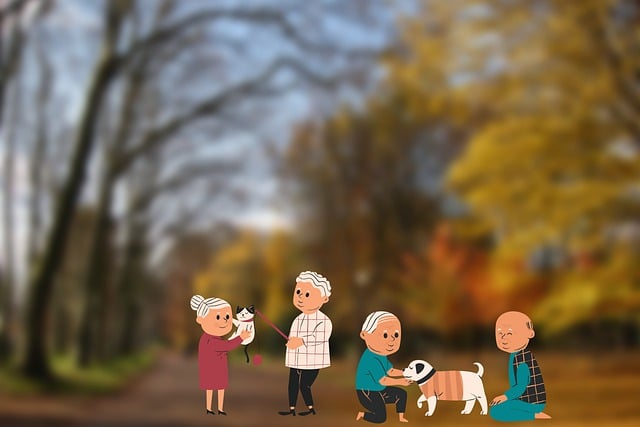Protecting grandparental rights in Oregon involves understanding specific legal terminology and procedures, with the state offering legal support to preserve relationships. Key terms like 'grandparent,' 'child,' and 'minor' are crucial for navigation. Legal advocacy is critical when facing parental opposition to maintain these connections. Specialized advocates help grandparents navigate court proceedings, ensuring their rights under Oregon law while fostering strong grandparental-grandchild bonds. Understanding state-specific regulations and seeking appropriate legal support from services like Oregon Legal Aid or private attorneys is essential.
In Oregon, protecting grandparental rights is a critical aspect of family law. This article delves into the intricate web of legal protections and resources available to grandparents. We explore the fundamental legal framework defining grandparental rights in Oregon, common scenarios and challenges they face, and the vital role of legal advocates in upholding these rights. Understanding these dynamics is crucial for both grandparents and legal professionals seeking to navigate this complex landscape, ensuring that family connections remain strong and protected.
- Understanding Grandparental Rights in Oregon: Legal Framework and Definitions
- Navigating Grandparent-Child Relationships: Common Scenarios and Challenges
- Legal Protection for Grandparents: Available Resources and Advocacy Options
- The Role of Legal Advocates in Upholding Grandparental Rights in Oregon
Understanding Grandparental Rights in Oregon: Legal Framework and Definitions

In Oregon, protecting grandparental rights is a complex yet essential aspect of family law. Understanding the legal framework surrounding these rights is crucial for both grandparents and parents alike. Grandparental rights refer to the visitation, custody, and relationship privileges that grandparents have with their grandchildren. These rights are not inherently guaranteed but can be established and protected through legal means. Oregon has specific laws in place to ensure grandparental involvement and well-being within families.
Navigating grandparental rights protection involves familiarizing oneself with definitions such as ‘grandparent,’ ‘child,’ and ‘minor.’ The Oregon Legal Aid Service outlines that a grandparent is typically defined as a parent’s parent, while a minor is any child under the age of 18. The legal support for grandparental rights in Oregon allows courts to make decisions based on what is in the best interest of the grandchild while also considering the rights and desires of the grandparents. Legal advocacy can play a pivotal role in ensuring these relationships are preserved, especially in situations where there may be opposition from parents or other family members.
Navigating Grandparent-Child Relationships: Common Scenarios and Challenges

Navigating Grandparent-Child Relationships: Common Scenarios and Challenges
In Oregon, protecting grandparental rights is a crucial aspect of family law. Many grandparents face challenges when it comes to maintaining a significant role in their grandchild’s life. Common scenarios include situations where parents may be reluctant to grant visitation or custody due to work commitments, personal circumstances, or misgivings about the grandparent’s ability to care for the child. In such cases, understanding Oregon’s legal framework is essential to ensure that grandparental rights are upheld and maintained.
Legal advocacy plays a vital role in navigating these complex issues. Grandparents seeking Oregon legal support can benefit from professionals who specialize in family law and have extensive experience handling grandparental rights cases. This expertise can help clarify rights, navigate court proceedings, and ultimately foster a positive outcome for all parties involved, ensuring that the bond between grandparents and grandchildren remains strong and protected.
Legal Protection for Grandparents: Available Resources and Advocacy Options

In Oregon, protecting grandparental rights is a crucial aspect of family law. Grandparents who wish to maintain a significant relationship with their grandchildren have several legal resources and advocacy options available. Understanding the laws that safeguard these rights is essential for ensuring a stable and loving environment for the entire family.
Navigating grandparental rights protection in Oregon involves familiarizing oneself with state-specific regulations and seeking appropriate legal support. The Oregon Legal Aid Service, private attorneys specializing in family law, and local advocacy groups can offer guidance and representation. These resources enable grandparents to understand their rights, navigate potential legal challenges, and foster an environment where their bond with grandchildren can thrive.
The Role of Legal Advocates in Upholding Grandparental Rights in Oregon

In Oregon, legal advocates play a pivotal role in protecting and upholding grandparental rights. These advocates specialize in family law and have an in-depth understanding of the intricate legal landscape surrounding grandparent-grandchild relationships. They guide families through the complexities of navigating grandparental rights protection, ensuring that every aspect is addressed with care and precision.
Legal support for grandparental rights in Oregon involves various strategies, including representation in court proceedings, drafting legal documents to establish visitation or custody, and providing counsel on how to handle specific situations. These advocates ensure that grandparents’ connections with their grandchildren remain intact while adhering to the law. They also educate families about their rights, empowering them to make informed decisions regarding their family dynamics.






